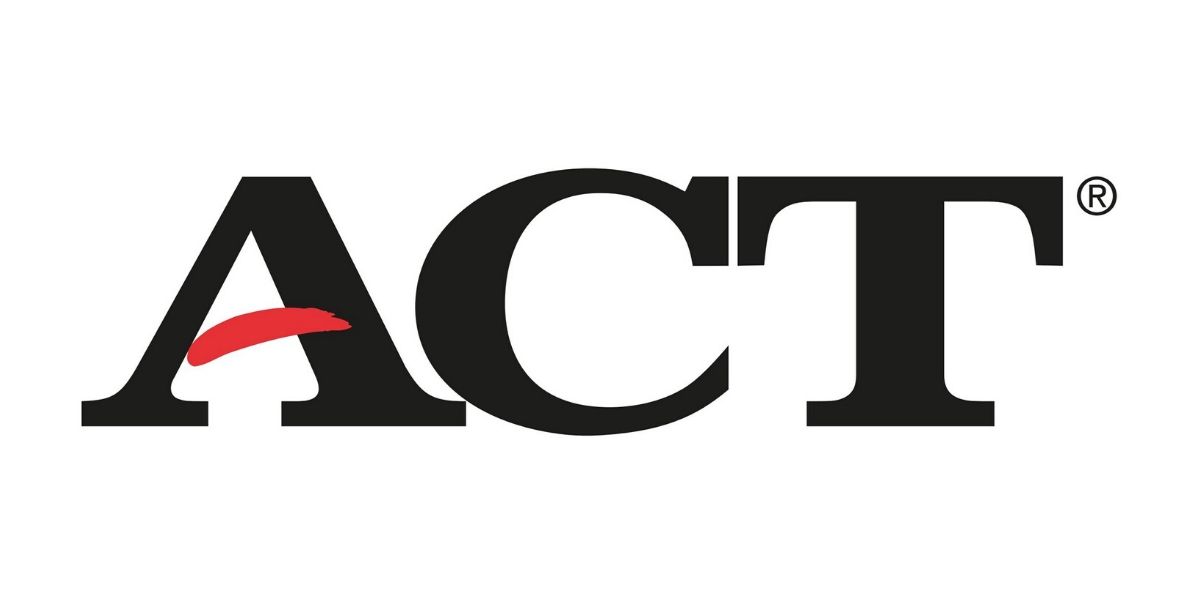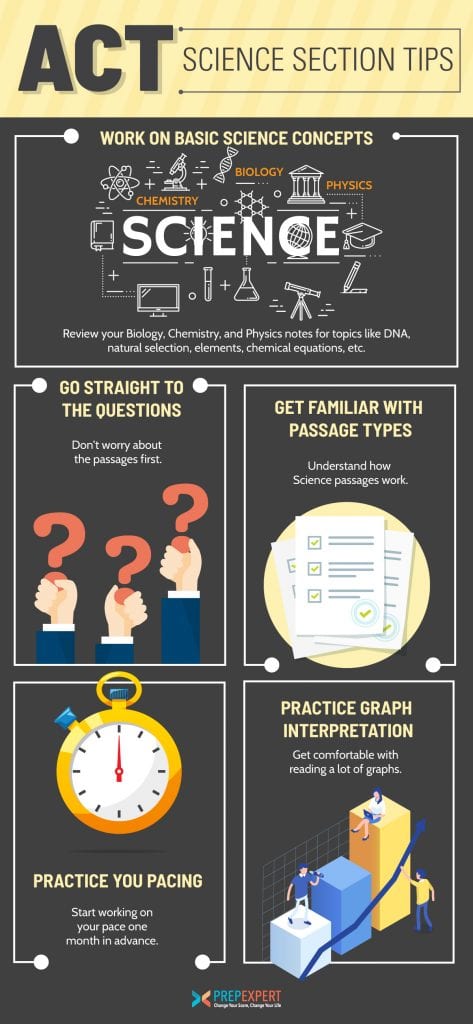ACT Science Section Tips
The good news about the ACT Science section is it doesn’t require professor-level knowledge to pass. To make things even easier, we have our own ACT science section tips to help you out.
You don’t have to be a scientist to ace the ACT Science section. Learn why with our ACT science section tips.
[act_one]
Learn how to prepare for standardized tests with our year-round SAT prep and ACT prep courses today. For practice tips check out our ACT science practice article.
Work On Basic Science Concepts
Knowing some basic concepts will make the Science section easier for you.
You don’t have to have much Science knowledge to get a perfect 36 score. Everything you need is in the passages.
If you don’t know what some scientific terms mean, you can use context to help figure them out. However, if you learn some basic Science terms and concepts, you won’t need context as much.
Review your Biology, Chemistry, and Physics notes for topics like DNA, natural selection, elements, chemical equations, etc. Again, you don’t have to be a master scientist for the test.
The best way to review what you should know is by taking a lot of Science practice tests.
Go Straight To The Questions
Don’t worry about the passages first.
Most of the questions provide you with citations of where to find the answer. You don’t need to read the passages first. For questions without citations, you can use keywords in the question to help.
Good keywords are located in either the question or answer choices that you can skim the passage for information. For example, if a question is about cell division, make that your keyword.
The one exception is the conflicting viewpoints passage. Here you need to compare and contrast two scientists’ views and answer questions. For these questions, you should read the passages first.
Get Familiar With Passage Types
Understand how Science passages work.
The ACT Science section presents three types of passages:
- Research Summary – You’re presented with a series of experiments,
- Data Representation – You receive information about a specific concept,
- Conflicting Viewpoints – Multiple theories about one single concept are presented.
In terms of format, you’ll tackle 6-7 total passages. Each one has 5-8 questions. You have 35 minutes to complete the entire section, so time management is essential.
[act_two]
Practice You Pacing
Get your answering time down before test day.
You only have 35 minutes to finish the Science section. That’s 5 minutes per passage to answer every 5-8 question set.
You have to have a consistent pace to make sure every question is answered in time. Start working on your pace one month in advance. Start with a few passages within the time constraints.
Then tackle more passages with a 6-minute time limit for answering. Go back and review your answers and accuracy. The more accurate you become, the less time you allow for answering.
Find a balance between answering speed and accuracy, because the answers still have to be correct.
Practice Graph Interpretation
Get comfortable with reading a lot of graphs.
Data representation, through graphs, charts, etc, is a big part of the Science section. One-third of the Science section covers Data Representation questions.
You have to be comfortable with interpreting data visually and drawing conclusions for it. To get ready:
- Take practice tests with realistic charts and examples
- Review scientific publication studies with charts and graphs
Both of these tricks better train your brain on how to take in visual data quickly and start drawing interpretations fast. Work on your skills by quickly looking over graphs and trying to figure out trends.
You can then look back over the text and see if you were right.
[act_three]
For more test strategy, college admissions, and scholarship application tips sign up for our FREE class happening right now!
Written by Todd Marcus
More from Todd Marcus

Taking The ACT Junior Year
If you're ambitious and want to give yourself plenty of time for score improvement, then consider taking the ACT junior…

ACT 2020 Score Release Dates
Here then are the ACT 2020 score release dates to plan around, as well as, the different kinds of available…

How To Determine Your Average SAT Study Time
If you want a high score on the SAT, then you need to put in the hours. There's no way…
